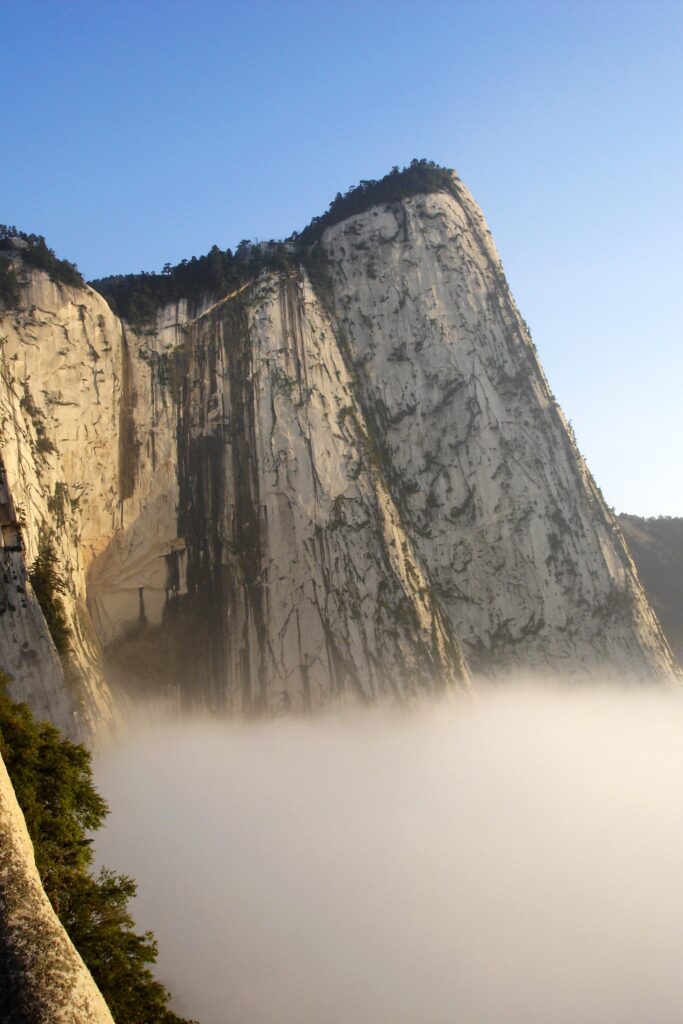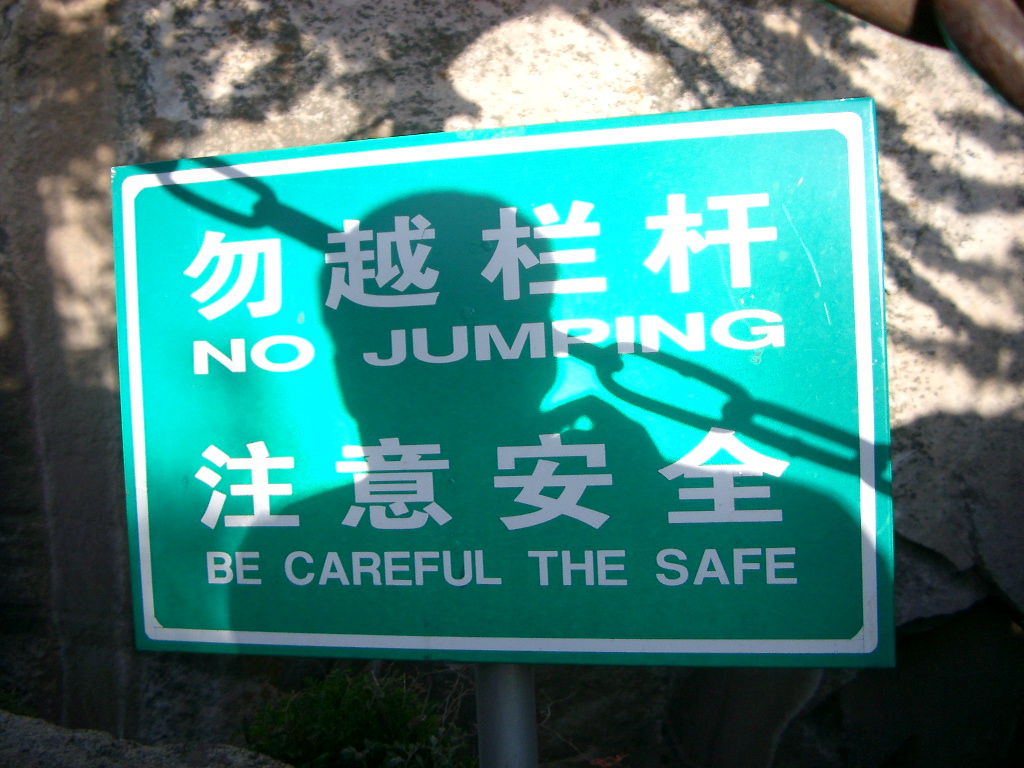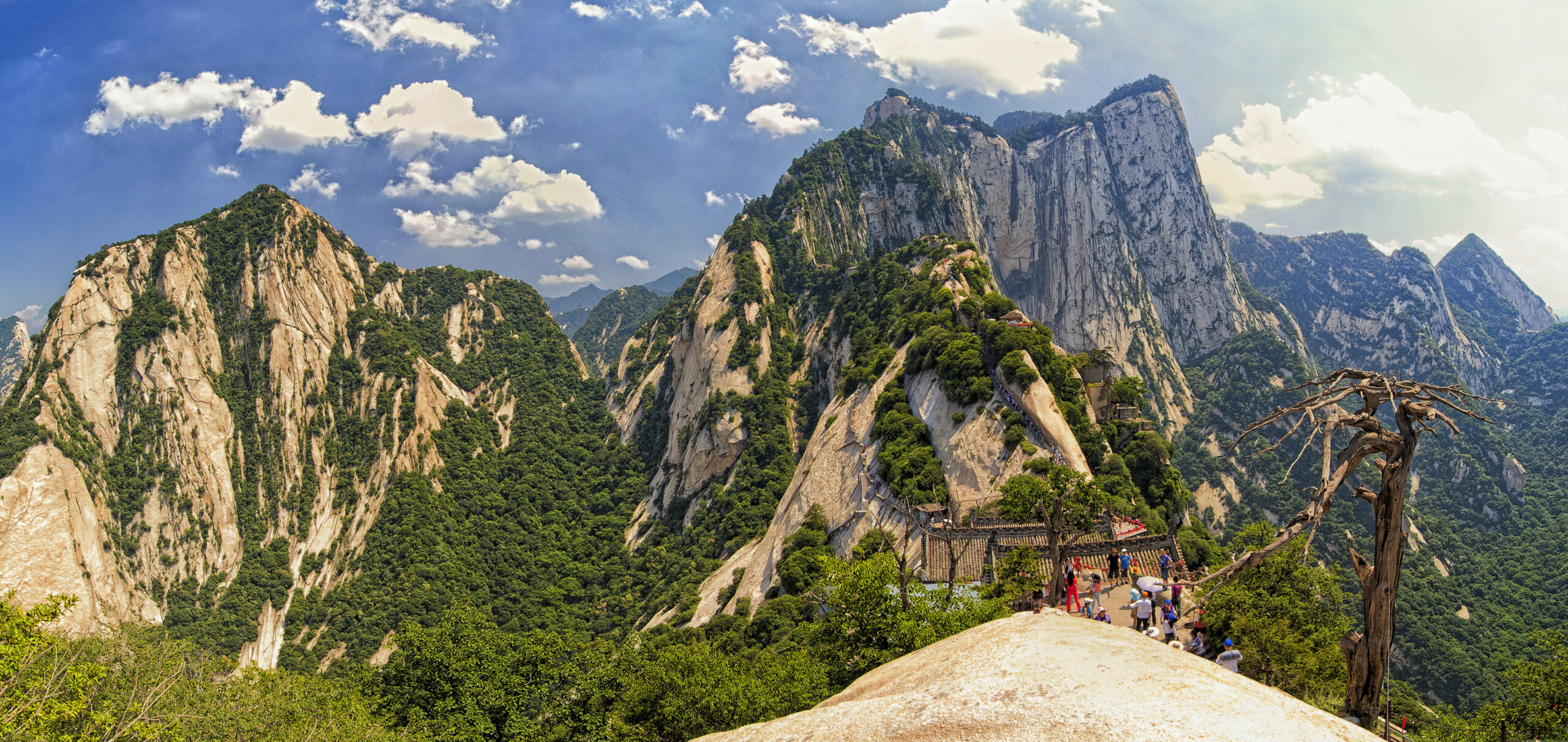Mount Hua, also known as Huashan, stands as one of China’s Five Great Mountains and is revered for its majestic peaks, breathtaking landscapes, and deep spiritual significance. Located in the Shaanxi province, approximately 120 kilometers east of Xi’an, Mount Hua has been a destination for pilgrims, adventurers, and nature enthusiasts for centuries, offering a harmonious blend of natural beauty and cultural heritage.
Rising dramatically from the plains of central China, Mount Hua is characterized by its five main peaks, each with a unique charm and distinct features. The peaks are named after the five classical Chinese elements: East Peak (Wood), South Peak (Fire), West Peak (Metal), North Peak (Water), and Central Peak (Earth). Each peak provides a different perspective of the surrounding landscape, contributing to the mountain’s allure.

For many visitors, the thrilling experience of climbing Mount Hua is a test of physical endurance and a journey into the heart of Chinese spirituality. The network of trails and staircases that wind their way up the mountain passes through scenic vistas, ancient temples, and precarious cliffside pathways. The journey to the summits is not for the faint of heart, as it often involves steep ascents, narrow paths, and vertiginous drops, creating a challenging yet rewarding adventure.
One of the most famous and treacherous features of Mount Hua is the Plank Walk in the Sky, situated on the South Peak. This narrow wooden plank pathway is secured to the side of a vertical cliff, suspended hundreds of meters above the ground. Adventurous hikers navigate this harrowing path while being rewarded with unparalleled views of the surrounding valleys and peaks. The Plank Walk in the Sky has become a symbol of the mountain’s daring spirit and attracts thrill-seekers from around the world.
Beyond its physical challenges, Mount Hua holds immense cultural and spiritual significance in Chinese history. The mountain has been a Daoist sacred site for centuries, with numerous temples and shrines dotting its slopes. The Jade Spring Temple, built during the Tang Dynasty, and the Xiyue Temple, dedicated to the Daoist god of Mount Hua, are among the many spiritual landmarks that pilgrims visit during their ascent.
The tea houses that line the trails also contribute to the unique atmosphere of Mount Hua. These rustic establishments provide a place for weary travelers to rest, enjoy a cup of tea, and take in the breathtaking scenery. The teahouses are not only practical resting spots but also cultural icons that add to the mountain’s charm.
The sunrise and sunset views from Mount Hua are particularly enchanting, transforming the landscape into a canvas of vibrant colors and dramatic shadows. Many hikers embark on nighttime ascents to witness the sunrise from the East Peak, an experience that is both awe-inspiring and spiritually resonant.

In conclusion, Mount Hua is a magnificent testament to the beauty of nature, the spirit of adventure, and the rich tapestry of Chinese culture. Its towering peaks, perilous trails, and ancient temples create an immersive experience that has drawn both pilgrims and thrill-seekers for generations. Mount Hua is not merely a mountain; it is a living embodiment of the interplay between the natural and the spiritual, inviting those who dare to climb its heights to embark on a journey of physical and spiritual discovery.

